News
-
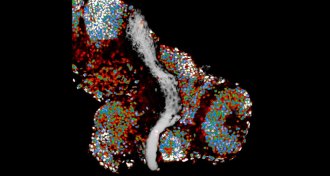 Neuroscience
NeuroscienceBrain’s physical structure may help guide its wiring
The brain’s stiffness helps dictate how nerve cells grow, a study suggests.
-
 Health & Medicine
Health & MedicineMixing Pokémon Go and driving isn’t safe
Pokémon Go alters reality to driver’s detriment, a new study finds.
-
 Archaeology
ArchaeologyPainting claimed to be among Australia’s oldest known rock art
A painting on a cave’s ceiling may be one of Australia’s earliest examples of rock art, according to researchers who used an ancient wasps’ nest to date the art.
By Bruce Bower -
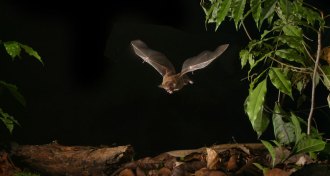 Animals
AnimalsFrog-hunting bats have ‘cocktail party effect’ workaround
Test with robotic frogs finds bats that hunt amphibians switch their attention to other clues if outside noise masks the mating chorus.
By Susan Milius -
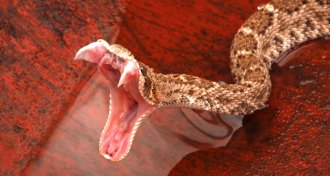 Life
LifeRattlesnakes have reduced their repertoire of venoms
The most recent common ancestor of today’s rattlesnakes had a huge set of toxin-producing genes. Modern rattlesnake species have independently ditched some of these genes.
-
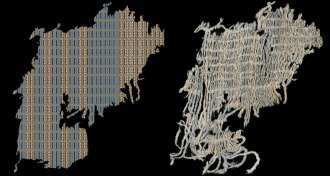 Archaeology
ArchaeologyOldest indigo-dyed fabric found
South American society was first known to use complex dye process on fabrics.
By Bruce Bower -
 Life
LifeColor vision strategy defies textbook picture
Cone cells in the retina see in black and white and color.
-
 Astronomy
AstronomyGaia mission’s Milky Way map pinpoints locations of billion-plus stars
New map of the galaxy provides unprecedented positions of over 1 billion stars and promises of a detailed 3-D atlas to come.
-
 Science & Society
Science & SocietySee where Clinton and Trump stand on science
Science News looks at where presidential candidates Hillary Clinton and Donald Trump stand on seven key science issues, from genetic engineering to space exploration.
-
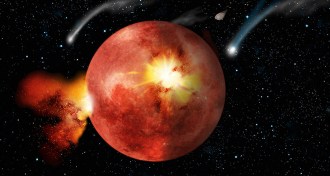 Planetary Science
Planetary ScienceMoon rocks may have misled asteroid bombardment dating
Discrepancies in moon rock dating muddy Late Heavy Bombardment debate.
-
 Health & Medicine
Health & MedicinePanel outlines research priorities for ‘Cancer Moonshot’
Recommendations for President Barack Obama’s Cancer Moonshot include improved data sharing, focus on immunotherapy and commitment to patient engagement.
By Laura Beil -
 Neuroscience
NeuroscienceBrain training can alter opinions of faces
Covert neural training could shift people’s opinions of faces.